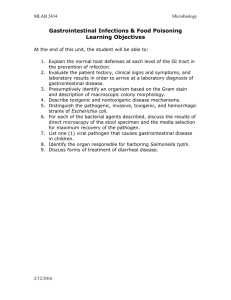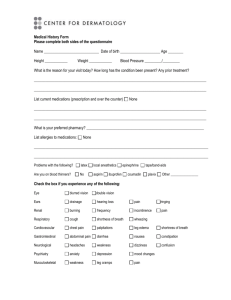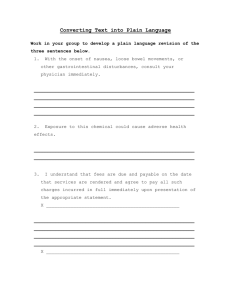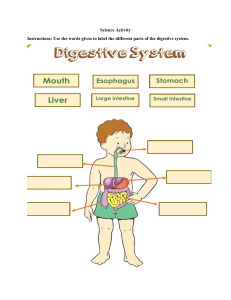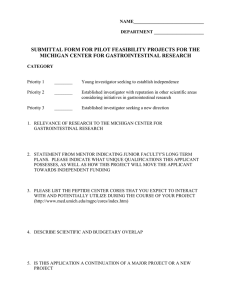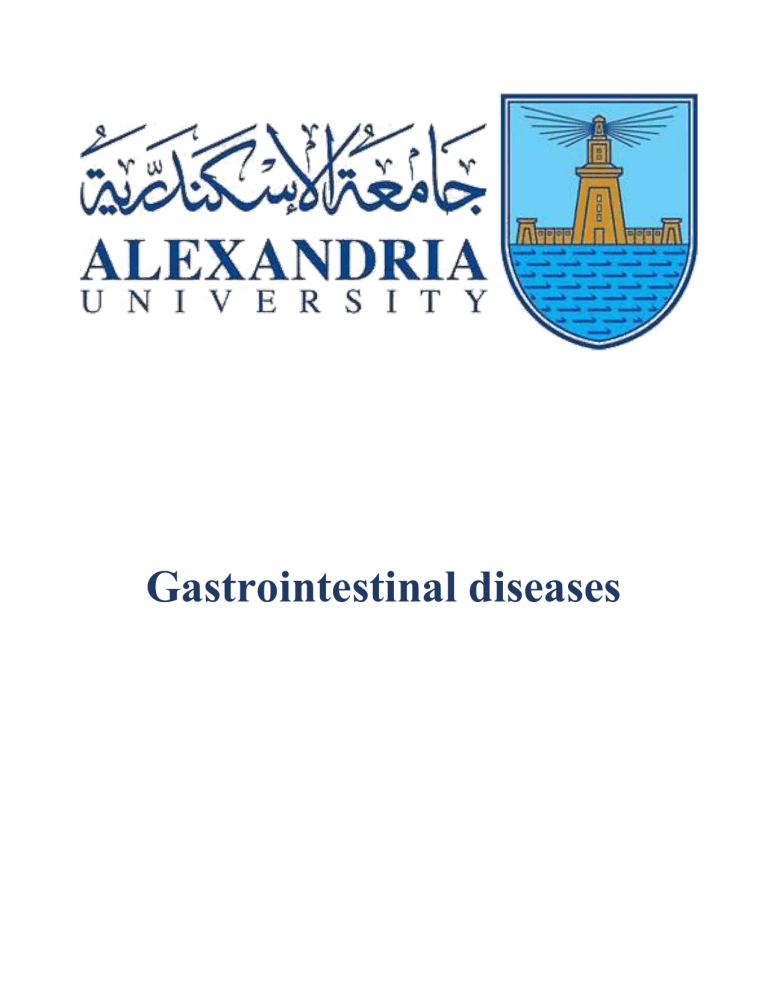
Gastrointestinal diseases What are gastrointestinal diseases ? Gastrointestinal diseases (abbrev. GI diseases or GI illnesses) refer to diseases involving the gastrointestinal tract, namely the esophagus, stomach, small intestine, large intestine and rectum, and the accessory organs of digestion, the liver, gallbladder, and pancreas. According to the National Institute of Diabetes and Digestive and Kidney Diseases, somewhere between 60 million and 70 million Americans suffer from gastrointestinal problems, leading to nearly 250,000 deaths each year. These conditions are responsible for close to 50 million hospital visits and 21.7 million hospital admissions annually, ■There are two types: functional and structural. What are functional gastrointestinal diseases? Functional diseases are those in which the GI tract looks normal when examined, but doesn't move properly. They are the most common problems affecting the GI tract (including the colon and rectum). Constipation, irritable bowel syndrome (IBS), nausea, food poisoning, gas, bloating, GERD and diarrhea are common examples. What are structural gastrointestinal diseases? Structural gastrointestinal diseases are those where your bowel looks abnormal upon examination and also doesn't work properly. Sometimes, the structural abnormality needs to be removed surgically. Common examples of structural GI diseases include strictures, stenosis, hemorrhoids, diverticular disease, colon polyps, colon cancer and inflammatory bowel disease. Causes and risk factors : ● Drinking less water ● Stress ● A low fiber diet ● Dairy foods ● Inactive lifestyle ● Aging ● Unhealthy lifestyle ● Obesity ● Smoking ● Excess alcohol consumption ● Genetic factors ● Taking certain drugs ●Change in the normal routine The first sign of problems in the digestive tract often includes one or more of the following symptoms: ● Blood on or in the stool that is either bright or dark ● Bloating ● constipation ● Diarrhea ● Heartburn ● Incontinence ● Nausea and vomiting ● Pain in the belly ● Swallowing problems ● Weight gain or loss Diagnosing Gastrointestinal Illnesses: Because there are a multitude of diagnoses that fall under GI illnesses, your medical team may ask you about your symptoms and recent activities, among other things, to help them make their diagnosis. Patients may be referred to a gastroenterologist for chronic disorders. Specialists may be able to help the patient determine how to adjust their lifestyle, diet, medications, or manage their ongoing symptoms. In cases where serious underlying disorders are suspected by your health care provider, immediate referral to the emergency department may be necessary. Treating a Gastrointestinal Disorder : Though specific treatments vary depending on the diagnosis, general care of stomach or digestive trouble may include: Resting and drinking plenty of fluids. Following the BRAT diet – bananas, rice, applesauce and toast – all of which are easy on the stomach and beneficial in their own way. At the same time, avoid things like dairy, grease and spices, as they can aggravate your digestive system. Taking over-the-counter medications to ease symptoms (for example, laxatives for constipation). Upon being examined by a medical provider, medications could be prescribed to control symptoms such as nausea to provide comfort and aid in the ability to rehydrate. When appropriate, anti-nausea medications and/or IV rehydration may be administered. Can gastrointestinal diseases be prevented? Many diseases of the colon and rectum can be prevented or minimized by maintaining a healthy lifestyle, practicing good bowel habits and getting screened for cancer. A colonoscopy is recommended for average-risk patients at age 45. If you have a family history of colorectal cancer or polyps, a colonoscopy may be recommended at a younger age. Typically, a colonoscopy is recommended 10 years younger than the affected family member. (For example, if your brother was diagnosed with colorectal cancer or polyps at age 45, you should begin screening at age 35.) Do’s Don’ts Drink plenty of liquids Drink alcohol or smoke Take rest Be irregular with your meal time Take GI medications on time Eat spicy foods Eat slowly and chew your Go to bed right after you food properly eat Eat fiber-rich food Consume the same type of food every day References: Made by : ▪ أميرة محمود فهمي السباعي ١٠٠١٩٦ ▪ خلود خالد مصطفي حامد ١٠٠٣٢٢ ▪ دميانه مشمش شاكر أسطاورو ١٠٠٣٣٢ ▪ إيمان محمد عاطف ابراهيم علي ١٠٠٢١٨ ▪ أميرة هيثم شحات نصير ١٠٠١٩٨ ▪ دعاء عادل عبد السيد السقا ١٠٠٣٣٠ ▪ حنين محمد محمد السروي ١٠٠٣١٤ ▪ دنيا امير عبد القادر محمد ١٠٠٣٣٣ ▪ داليا محمد أنور محمد ١٠٠٣٢٧ ▪ إيمان ايمن السيد احمد ساري ١٠٠٢٠٩
